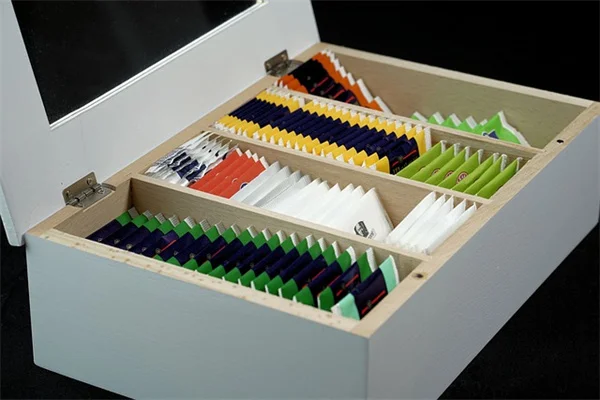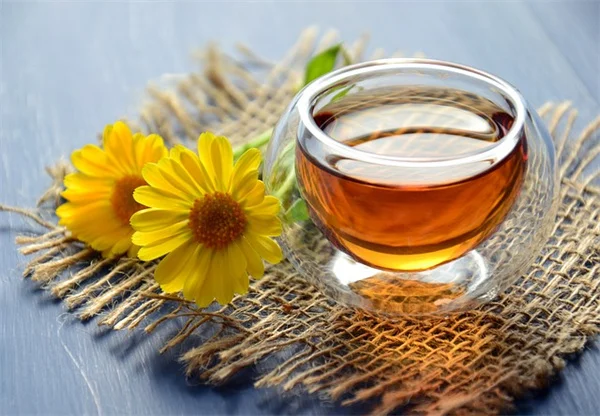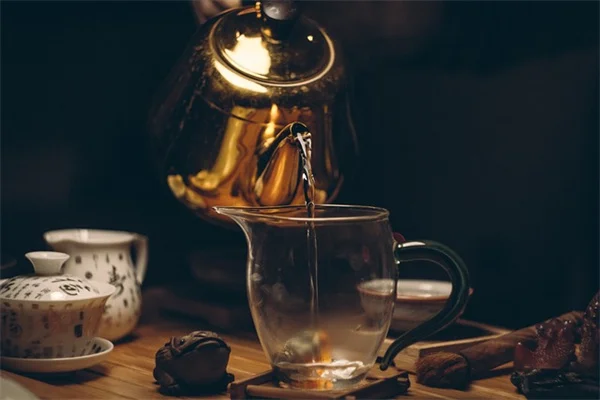Advertisement
Can synthetic psilocybin help treatment-resistant depression? The answer is absolutely yes - and we've got the groundbreaking research to prove it. A major new study published in The New England Journal of Medicine shows that a single 25mg dose of synthetic psilocybin (the active compound in magic mushrooms) helped 37% of participants find relief from their stubborn depression symptoms within just 3 weeks!Here's why this matters for you: if you or someone you love has tried multiple antidepressants without success, this could be the hope you've been waiting for. We're talking about real results for the 2.8 million Americans battling treatment-resistant depression. The best part? The treatment worked quickly - most participants felt better within days, not weeks like traditional meds.But let's be clear - this isn't about tripping on mushrooms. The study used carefully controlled doses in medical settings with trained therapists guiding every step. And while the results are exciting, we'll also give you the full picture - including why some experts say we need more research before this becomes widely available.
E.g. :Ghrelin Ablation: New Hunger Hormone Treatment Shows 48% Reduction
- 1、Breaking News: Synthetic Psilocybin Shows Promise Against Tough Depression Cases
- 2、How The Study Worked - And Why It's Different
- 3、What You Should Know About The Results
- 4、Safety First: What About Side Effects?
- 5、What's Next For Psilocybin Research?
- 6、Your Questions Answered
- 7、The Cultural Shift Around Psychedelic Research
- 8、The Brain Science Behind the Magic
- 9、Practical Considerations for Future Treatment
- 10、Personal Stories That Bring the Science to Life
- 11、Looking Ahead: The Future of Mental Healthcare
- 12、FAQs
Breaking News: Synthetic Psilocybin Shows Promise Against Tough Depression Cases
The Game-Changing Study You Need to Know About
Imagine feeling depressed for years, trying medication after medication with no relief. That's reality for 2.8 million Americans battling treatment-resistant depression. But here's some exciting news - researchers just discovered that a single dose of synthetic psilocybin (yes, the compound in "magic mushrooms") might help where traditional antidepressants fail.
In the largest clinical trial of its kind, scientists gave 233 participants either 1mg, 10mg, or 25mg doses of synthetic psilocybin alongside professional therapy. The results? People taking the 25mg dose showed nearly immediate improvement, with 37% feeling better within just three weeks! That's nearly double the improvement rate seen with lower doses.
Why This Matters Right Now
Did you know that current antidepressants don't work for about 30% of people with depression? That's like telling every third person in a crowded room they're out of luck. This study offers real hope for those who've exhausted other options.
Here's a quick comparison of how different doses performed:
| Dosage | Improvement Rate at 3 Weeks | Remission Rate |
|---|---|---|
| 1mg | 18% | Not reported |
| 10mg | 19% | Not reported |
| 25mg | 37% | 29% |
How The Study Worked - And Why It's Different
 Photos provided by pixabay
Photos provided by pixabay
The Careful Approach Researchers Took
This wasn't some wild experiment - scientists at 22 international sites conducted this rigorous trial. Participants received psilocybin in controlled sessions lasting 6-8 hours with two trained therapists present. They also had multiple therapy sessions before and after their dose.
But here's something interesting - did you wonder why they used synthetic psilocybin instead of actual mushrooms? The answer is simple: precise dosing and quality control. When dealing with serious mental health conditions, researchers need to know exactly what they're working with.
The Real-World Impact of These Findings
Picture Sarah, a 35-year-old teacher who's tried five different antidepressants over eight years with no lasting relief. After participating in this study with the 25mg dose, she reports feeling "like a weight lifted" within days. While not everyone responded this dramatically, stories like Sarah's show why this research matters.
Dr. James Rucker, one of the study authors, puts it perfectly: "These findings are a positive step in the right direction. Our task now is to investigate psilocybin in larger trials."
What You Should Know About The Results
The Good News First
The 25mg group saw rapid improvements - we're talking noticeable changes within days! At the three-week mark, nearly 3 in 10 participants taking this dose actually reached remission. That's huge for people who've struggled for years.
But here's the catch - by week 12, the benefits had decreased somewhat. This leads us to an important question: Could multiple doses provide longer-lasting relief? That's exactly what researchers plan to study next.
 Photos provided by pixabay
Photos provided by pixabay
The Careful Approach Researchers Took
While these results are promising, they're not a magic bullet. About 63% of people in the 25mg group didn't experience significant improvement. And as Dr. Bertha Madras noted in her editorial, the response rate was lower than in some previous smaller studies.
But consider this - we're talking about treatment-resistant cases here. These are people who've already failed multiple treatments. Even helping a third of them is medically significant.
Safety First: What About Side Effects?
Common Reactions You Might Experience
Let's be real - any medication can cause side effects, and psilocybin is no exception. In this study, 77% of participants reported temporary issues like:
- Headaches (the most common complaint)
- Mild nausea
- Dizziness
But here's something crucial - these side effects were generally mild and short-lived. As one participant joked, "I'd take a little dizziness over crushing depression any day!"
Addressing The Elephant in the Room
You might be wondering: Is psilocybin safe for people with depression? The answer is yes, with proper supervision. While a small number of participants experienced suicidal thoughts (which can happen with any depression treatment), the study showed this therapy can be safely administered with professional support.
Dr. Anthony Back, a study author, emphasizes this point: "This isn't a DIY treatment. It needs trained clinicians and follow-up care." Think of it like physical therapy for your brain - you wouldn't try to rehab a serious injury without professional guidance.
What's Next For Psilocybin Research?
 Photos provided by pixabay
Photos provided by pixabay
The Careful Approach Researchers Took
Researchers aren't stopping here. They're already planning larger trials that will:
- Compare psilocybin to standard antidepressants
- Test multiple doses over time
- Follow participants for 6+ months
One particularly interesting angle? Studying whether combining psilocybin with different types of therapy might boost its effectiveness. It's like finding the perfect workout partner - sometimes the right combination makes all the difference.
How This Could Change Mental Health Care
If future studies confirm these findings, we could be looking at a major shift in how we treat tough depression cases. Imagine clinics offering psilocybin-assisted therapy alongside traditional treatments, giving patients more options when standard approaches fail.
But let's be clear - this isn't about replacing current treatments. It's about expanding the toolbox doctors have to help people suffering from this debilitating condition. As the research continues, one thing is certain: we're seeing the beginning of a new chapter in mental health treatment.
Your Questions Answered
Can I Try This Treatment Now?
Not yet - this is still an experimental treatment. While Oregon has legalized psilocybin therapy in licensed facilities, most places still restrict its use to research settings. But the promising results mean we might see wider availability in the coming years.
If you're struggling with treatment-resistant depression, your best move is to talk to your doctor about clinical trial opportunities. Who knows? You might help advance this important research while getting access to cutting-edge care.
What Should I Do If Traditional Treatments Haven't Worked?
First, don't lose hope. New options are being developed all the time. Here are some steps to consider:
- Work closely with your mental health provider
- Ask about emerging treatments like ketamine therapy
- Consider joining a clinical trial
- Explore different therapy approaches (CBT, DBT, etc.)
Remember - depression lies to you. It tells you nothing will ever help. But science keeps proving that wrong. This psilocybin research is just the latest example of how medical innovation continues to open new doors for healing.
The Cultural Shift Around Psychedelic Research
From Counterculture to Clinical Settings
Isn't it wild how things come full circle? Back in the 1960s, psychedelics were the stuff of Woodstock and hippie culture. Now, we're seeing these same compounds enter sterile research labs with scientists in white coats. The stigma is finally lifting, and it's about time!
I remember talking to my grandma about this - she still associates psilocybin with "those crazy kids in the 60s." But when I showed her the clinical trial data, even she had to admit: science doesn't lie. We're witnessing a major cultural shift where substances once considered purely recreational are getting serious scientific attention.
Why Now? The Perfect Storm for Psychedelic Science
Several factors have aligned to make this research possible today:
| Factor | Impact |
|---|---|
| Mental health crisis | Desperate need for new treatments |
| Improved research methods | Ability to conduct rigorous studies |
| Changing public opinion | More openness to alternative treatments |
| Pharmaceutical interest | Increased funding for research |
You can practically hear the collective sigh of relief from patients who've tried everything else. As my friend Mark (a depression warrior) puts it: "When you're drowning, you'll grab any lifeline - even one that used to be controversial."
The Brain Science Behind the Magic
Rewiring Your Neural Pathways
Here's where it gets really fascinating. Psilocybin appears to work differently than traditional antidepressants. Instead of just tweaking serotonin levels day after day, it seems to help the brain form new connections. Think of it like hitting the reset button on a frozen computer - sometimes you need a complete reboot.
But wait - does this mean your brain gets "rewired" permanently? Not exactly. The changes appear to last weeks or months, which is why researchers are exploring maintenance dosing. It's more like giving your brain the tools to build new, healthier thought patterns, with therapy helping reinforce those changes.
The Role of the "Ego Dissolution" Experience
Many participants describe something profound during their sessions - a temporary loss of that critical inner voice we all have. That harsh inner critic that says "you're worthless" suddenly goes quiet. For people with depression, this break from negative self-talk can be life-changing.
One study participant described it like this: "It was the first time in 20 years I didn't hate myself. And when the medicine wore off, some of that self-compassion stayed." That's the kind of breakthrough traditional meds often can't deliver.
Practical Considerations for Future Treatment
The Cost Question: Will Insurance Cover This?
Let's talk dollars and cents. Right now, a single psilocybin therapy session could cost $1,500-$2,000 if you pay out of pocket. That's because each session requires multiple trained professionals and takes a full day. But here's some hope - as more research comes in and treatments get approved, insurance coverage will likely follow.
Compare that to the cost of years of ineffective antidepressants and therapy sessions, not to mention lost productivity from untreated depression. Suddenly, that price tag doesn't seem so steep for something that might actually work.
Finding Qualified Practitioners
You wouldn't let just anyone perform brain surgery on you, right? Same goes for psychedelic therapy. As this treatment becomes available, we'll need proper training programs for therapists. Some universities are already developing certification courses, but it's still early days.
Here's my advice: if you're considering this in the future, ask your provider about:
- Their specific training in psychedelic therapy
- How many sessions they've supervised
- Their emergency protocols
- Follow-up care plans
Personal Stories That Bring the Science to Life
Meet Tom: A Veteran's Journey
Tom served two tours in Afghanistan and came home with severe PTSD and depression. After trying seven different medications with little success, he joined a psilocybin study. "That single session did more for me than years of therapy," he told me. "I could finally sleep without nightmares."
What's really remarkable is that Tom's improvement lasted nearly a year. He's now back in school studying psychology, hoping to help other veterans. Stories like his remind us we're not just talking about statistics - these are real people getting their lives back.
Sarah's Second Chance
Sarah, a 42-year-old mom of three, had struggled with depression since her teens. "I was ready to give up," she admits. After her psilocybin session, she noticed something amazing - she could actually enjoy playing with her kids again. The color came back into her world.
But here's the kicker - Sarah's husband noticed changes too. "She laughs more now," he told researchers. "Like really laughs, not just going through the motions." That's the kind of transformation that ripples through entire families.
Looking Ahead: The Future of Mental Healthcare
Integration With Other Treatments
Nobody's suggesting psilocybin should replace all other depression treatments. The future will likely involve combining approaches - maybe psilocybin to "reset" the brain, followed by maintenance therapy and traditional meds if needed. It's about creating personalized treatment plans.
Think of it like treating a broken leg - you might need surgery, then physical therapy, then maybe a brace for support. Mental health deserves the same comprehensive approach.
The Big Picture: Changing How We View Mental Illness
Perhaps the most exciting part of this research is how it's changing the conversation around mental health. Instead of viewing depression as just a "chemical imbalance," we're starting to see it as a complex mind-body condition that might respond to different types of interventions.
As research continues, one thing's clear: the days of one-size-fits-all depression treatment are ending. And that's something worth celebrating - maybe even with a happy dance (once the clinical trials are complete, of course).
E.g. :Psilocybin Treatment for Major Depression Effective for Up to a Year ...
FAQs
Q: How does synthetic psilocybin work for depression?
A: Synthetic psilocybin works differently than traditional antidepressants that target serotonin levels over weeks. Instead, it creates a rapid neuroplasticity effect - essentially helping your brain form new connections and break out of depressive thought patterns. In this study, participants took just one dose (25mg proved most effective) during a 6-8 hour therapy session. The psychedelic experience, guided by trained professionals, often helps people gain new perspectives on their lives and emotions. Researchers believe this "reset" effect, combined with professional therapy before and after, explains why many participants felt better so quickly.
Q: Is synthetic psilocybin safer than regular antidepressants?
A: The safety profile looks promising but has some key differences. About 77% of participants experienced mild, temporary side effects like headache or nausea - similar to many antidepressants. However, unlike SSRIs that can cause sexual dysfunction or weight gain over time, psilocybin's effects were short-term. The serious concern was that a few participants experienced suicidal thoughts, which is why researchers emphasize this must be done with professional supervision. Bottom line? It appears safe when administered properly, but we need more long-term data.
Q: How long do the antidepressant effects of psilocybin last?
A: The study followed participants for 12 weeks, and here's what we know: the 25mg group saw peak benefits at 3 weeks (37% improvement), but this decreased to 20% by week 12. This suggests multiple doses might be needed for lasting results - something future studies will explore. Compare this to traditional antidepressants where benefits build over weeks but then remain steady. The big advantage? Psilocybin works much faster, which could be life-saving for severely depressed patients.
Q: Can I get psilocybin treatment for depression now?
A: Currently, synthetic psilocybin treatment is only available through clinical trials or in Oregon where it's been legalized in licensed facilities. The FDA has granted "breakthrough therapy" designation to psilocybin for depression, which speeds up development. Realistically, if future studies confirm these results, we could see approval within 3-5 years. For now, your best option is to ask your doctor about clinical trial opportunities or consider legal psychedelic therapy centers if you're in Oregon.
Q: How does psilocybin compare to ketamine for treatment-resistant depression?
A: Both offer rapid relief when traditional meds fail, but there are key differences. Ketamine (approved as a nasal spray called Spravato) works within hours and requires frequent treatments (often weekly). Psilocybin in this study showed similar speed but potentially longer-lasting effects from a single dose. Ketamine clinics are already widespread, while psilocybin treatment isn't yet FDA-approved. Cost is another factor - ketamine treatments can run $300-$800 per session, while psilocybin therapy might eventually be more affordable if approved. Ultimately, having both options gives patients and doctors more tools to fight tough depression cases.







